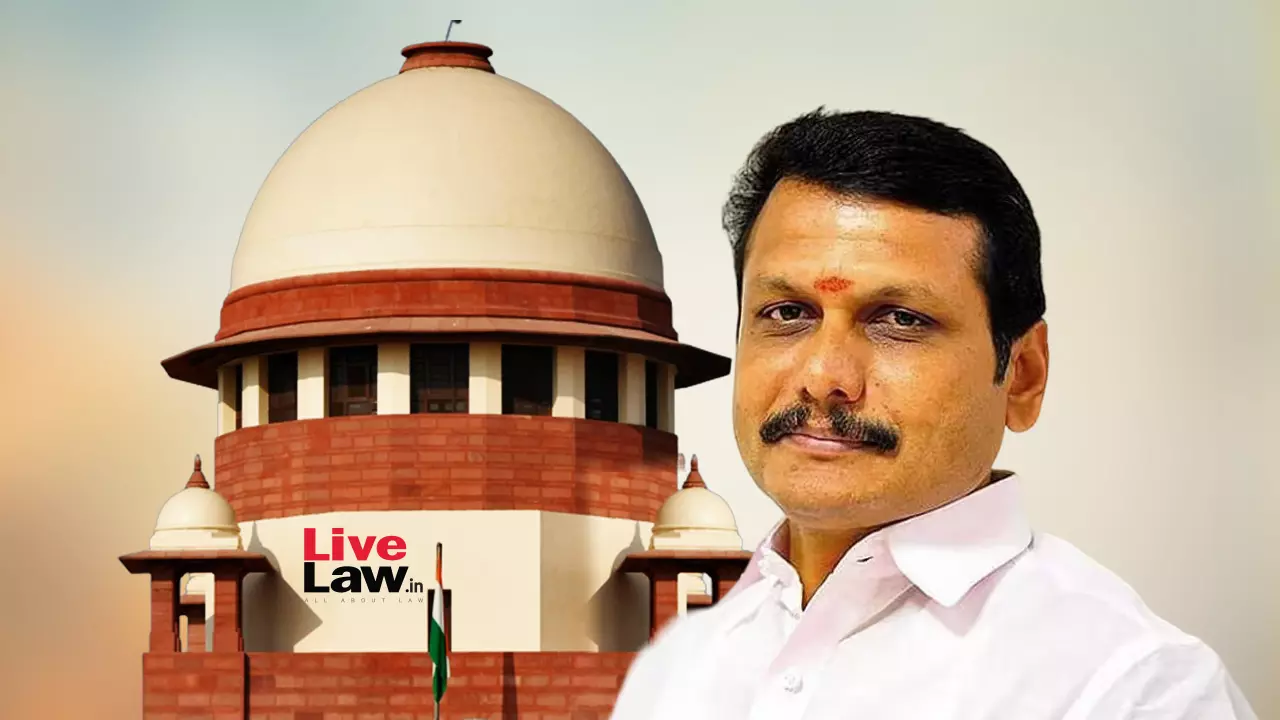 |
|
The Supreme Court of India recently granted bail to Senthil Balaji, a former Tamil Nadu Minister, in a money laundering case stemming from allegations of a 'cash for jobs' scheme. While the court acknowledged the existence of a prima facie case against Balaji, it granted bail citing the delay in trial proceedings. This decision underscores the delicate balance between ensuring a fair trial and preventing potential witness tampering, particularly when high-profile individuals are involved.
The allegations against Balaji involve a systematic scheme orchestrated during his tenure as the Transport Minister between 2011 and 2016. According to the Enforcement Directorate (ED), Balaji, in collusion with his aides, allegedly solicited substantial sums from job seekers in exchange for securing positions within the Transport Department. This scheme, involving various roles like Drivers, Conductors, and Engineers, allegedly generated millions of rupees in illegal income. The ED claims to have discovered evidence, including a pen drive seized from Balaji's premises, containing files detailing the amounts collected for each job and corresponding payments.
Balaji's defense contested the authenticity of the evidence presented by the ED. They argued that the pen drive's contents, allegedly showing a file named 'CSAC' detailing the illicit transactions, were not supported by forensic analysis. The Tamil Nadu Forensic Science Laboratory (TNFSL) report, according to the defense, revealed a file named 'csac.xlsx' but contained no incriminating details. Further, Balaji's legal team asserted that the Rs. 1.34 crore deposited in his bank account originated from legitimate sources, namely his MLA salary and agricultural income. However, the court found insufficient evidence to substantiate Balaji's claims, concluding that at this stage, it was difficult to dismiss the prima facie case against him.
The ED, however, maintained its stance, arguing that the evidence collected, including email communications and witness statements, provided substantial grounds for implicating Balaji in the alleged scheme. They emphasized that the accused's long-standing political influence posed a significant risk of witness tampering and potentially jeopardized the fairness of the trial if he were to be released on bail. The Solicitor General for the ED also highlighted unexplained cash deposits in Balaji's wife's account, further bolstering their arguments.
The Supreme Court, while recognizing the gravity of the charges and the potential for witness influence, ultimately decided to grant bail to Balaji. This decision, although seemingly at odds with the court's own observations regarding the prima facie case, was based on the significant delay in the trial process. The court felt that prolonging Balaji's detention would further impede the progress of the trial without offering any substantial benefit to the investigation.
This case serves as a reminder of the complex interplay between legal proceedings, public perception, and political dynamics. While the court acknowledged the seriousness of the allegations against Balaji, it also acknowledged the importance of a fair and timely trial. The future of the case remains uncertain, with the burden of proof resting squarely on the ED. As the legal process unfolds, public scrutiny and media attention will likely continue, shaping the narrative surrounding this high-profile case.
Source: Prima Facie Case Under PMLA Exists Against Senthil Balaji: Supreme Court While Granting Bail
